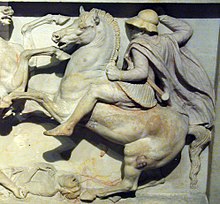Post
by Speaker to Animals » Tue Jun 05, 2018 6:20 pm
Wells didn't invent it either.
Mark Twain wrote Connecticut Yankee in King Arthur's Court in the 1880s. Washington Irving wrote Rip Van Winkle in in the 1810s, I think.
I can't think of any genre fiction using time travel dated before that off-hand, but folklore featured time travel pretty much everywhere. Every culture that has stories of fairies of some kind has stories about time travel. Fairies entice or abduct innocent humans into their realm. There is a feast. It is implied that they want to mate with him in order to create hybrids in many instances. They return him to our world after the night. But in our world, many years have passed and he was presumed dead.
That trope is old as shit and almost global. There is a kind of fairy tradition in Philippines that is basically the same thing. They have legend of a fairy city on one of their islands that you cannot really reach or find, but sailors see it's lights from the sea sometimes. The inhabitants are technologically advanced compared to us, and they hide their city from us, but they lust after us and sometimes abduct humans to the city never to return. The offspring of the humans and fairies can pass for humans, though, and often are reported as visiting Disney World and other locations. Taxi drivers reported having driven them to some spot where they thanked him and got out, and then disappeared.
Yeats recorded many Irish folktales of similar effect that date back really far.
The time travel genre is actually much, much older than science fiction (and space fantasy like Star Trek). It's a genre that actually merged with fantasy in the 1800s from folktale traditions (Irving), and then later merged with science fiction (Wells).
The books of the Bible arguably are a form of time travel as well (communication between times).


